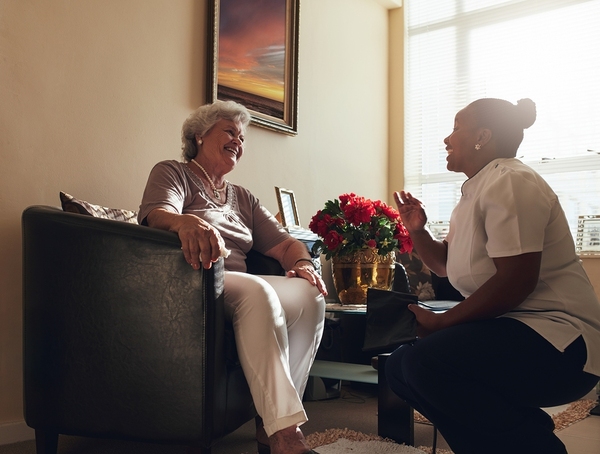 Many conversations about aging often involve the topic of quality of life for seniors. However, a recent Forbes article highlights a flaw in the use of “quality of life” as a blanket term: Not only is it subjective, but it’s also inherently dynamic. Given the ambiguity surrounding the oft-used phrase and its meaning, it follows that there’s often confusion regarding how best to support quality of life for elderly people.
Many conversations about aging often involve the topic of quality of life for seniors. However, a recent Forbes article highlights a flaw in the use of “quality of life” as a blanket term: Not only is it subjective, but it’s also inherently dynamic. Given the ambiguity surrounding the oft-used phrase and its meaning, it follows that there’s often confusion regarding how best to support quality of life for elderly people.
The good news? Data from Pew Research sheds new invaluable light on the subject by going straight to the source: Seniors themselves. Here’s a closer look at the study, along with what it reveals about how caregivers can support quality of life in older age.
The “Satisfaction” Over-Simplification
A body of evidence tells us that happiness contributes to the quality of life. However, while this concept is simple in theory, it’s more complicated in the real world -- particularly when you factor in age-related changes and perceptions.
While 76 percent of U.S. residents aged 75 and older say they’re satisfied with their lives today, only 19 percent of them believe that their lives will improve over the next decade, according to a Pew Research survey on aging and quality of life. Compare this to 71 percent of people under the age of 50 who expect better lives 10 years from now. At the same time, just 30 percent of adults in the 75-and-older age group feel like the lives their currently living are better than they were a decade ago.
The takeaway?
While seniors may report that they’re satisfied with their lives overall, their satisfaction is less than it once was and likely to decline in the future.
Supporting Senior Quality of Life
The data shared by Pew can be viewed as both heartening and disheartening. After all, feeling generally satisfied with life -- even if it’s less than it once was and more than it will be -- is a good thing. However, this doesn't mean seniors (and their caregivers) should settle for bleak expectations regarding quality of life in the future. Pew Research survey takes things a helpful step further by identifying which aspects adults in various age groups feel are particularly important when influencing the quality of life in older age.
Regardless of the age group, the relative order of characteristics supporting quality of life remains consistent, which one thing topping the list for all: The ability to talk and communicate.
Also viewed as important, is the order they were ranked by adults of all ages.
- Being able to feed oneself
- Getting enjoyment out of life
- Living without severe, lasting pain
- Having long-term memory
- Feeling what one does is worthwhile
- Being able to dress oneself
- Having good short-term memory.
Older people view all of these things as less important than their younger counterparts with one exception: the ability to dress themselves.
Key Takeaways
While caregiving for the elderly isn’t easy, the key to helping older adults lead more satisfying lives doesn't have to be a mystery thanks to insights from Pew Research into senior perceptions.
For starters, communication is key. Talking with seniors, encouraging them to share their feelings, and welcoming their input is an invaluable way to support quality of life.

Also important? Helping them to connect with others, continue cherished activities and hobbies, and feel useful and needed in everything from everyday tasks to volunteering within their capabilities.
As far as more logistical concerns, such as eating and dressing, everything from consulting with their healthcare teams to learning more about assistive devices can help support senior independence for as long as possible.
One last thing to keep in mind? Ultimately, some quality of life-impacting, age-related changes are unavoidable. However, keeping the lines of communication open throughout these changes is a vital part of helping not only meet their basic needs but also their expectations.
If you're looking for a comprehensive resource for family caregivers, check out our online Family Caregiver Guide.mmLearn.org offers a large library of free videos for caregivers of older adults, covering topics pertaining to senior care. Whether you are a healthcare professional or a family caregiver, if you are caring for an older adult we know that you will find mmLearn.org an essential learning and guidance tool for all of your caregiver training needs. Access our database of free online caregiver videos to start learning today.

